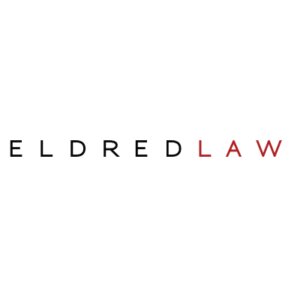Best Truck Accident Lawyers in Southampton
Share your needs with us, get contacted by law firms.
Free. Takes 2 min.
List of the best lawyers in Southampton, United Kingdom
About Truck Accident Law in Southampton, United Kingdom
The law pertaining to truck accidents in Southampton and throughout the United Kingdom is complex and wide-ranging. Due to the severity and frequent causes of collisions involving trucks, such as driver fatigue, inadequate training, and mechanical failure, personal injury cases involving trucks require a deep understanding of various regulations and safety standards. Depending on the specifics of each case, several parties could be held liable including - the truck driver, trucking company, owner of the truck, or even the contractor responsible for the vehicle's maintenance.
Why You May Need a Lawyer
Should you be involved in a truck accident, you may require legal representation for several reasons. Firstly, proving liability in truck accidents can be a complex process and attorneys are well-equipped to deal with such matters. Secondly, experienced lawyers can help victims through the process of claiming compensation for potential loss of wages, medical expenses and long-term rehabilitation costs as a result of the accident. Lastly, insurance firms might attempt to diminish or reject your claim, hence having a legal representative can help you ensure your rights are defended.
Local Laws Overview
Under United Kingdom law, specifically the Road Traffic Act 1988, using a mechanically propelled vehicle on the road or in other public places without care and attention or reasonable consideration for other users, can be considered an offense. For accident claims, the victim has three years from the date of the accident to start court proceedings for personal injury. Data protection laws also permit those involved in accidents to access footage from CCTV and dash-cams, which can be critical in supporting arguments in Road Traffic Accident cases.
Frequently Asked Questions
What is the claim process for a truck accident?
Claiming compensation for a truck accident involves several steps including reporting the accident, gathering evidence, establishing liability, assessing damages and negotiating the injury settlement.
What is a typical settlement for a Truck accident case?
The amount of settlement totally depends upon the severity of the injury and lost earnings, medical expenses, and any other related costs.
Can I still claim compensation if the accident was partly my fault?
In many cases, even if you were partly at fault for the accident, you might still be able to claim partial compensation based on the concept of 'contributory negligence'.
What should I do right after a truck accident?
It is in your best interest to report the accident to the police, seek immediate medical attention, collect contact information from everyone involved and any witnesses, and engage a competent lawyer promptly.
Are Truck accident cases handled differently than car accident cases?
Given the larger size and weight of trucks, accidents involving them often result in far more serious injuries than other vehicles. Also, liability in trucking accidents can be more complicated due to various parties involved.
Additional Resources
The Compensation Recovery Unit (CRU) and the UK Health and Safety Executive (HSE) could provide useful information in handling truck accident cases. Furthermore, the Law Society of the UK has a database of certified legal experts in Truck Accident law to conduct consultations.
Next Steps
If you have been involved in a truck accident in Southampton, you should consider seeking legal advice immediately to protect your rights and maximize your chances of obtaining a favorable settlement. A reliable lawyer will guide you through the legal process, ensuring that all required documentation is correctly prepared and submitted.
Lawzana helps you find the best lawyers and law firms in Southampton through a curated and pre-screened list of qualified legal professionals. Our platform offers rankings and detailed profiles of attorneys and law firms, allowing you to compare based on practice areas, including Truck Accident, experience, and client feedback.
Each profile includes a description of the firm's areas of practice, client reviews, team members and partners, year of establishment, spoken languages, office locations, contact information, social media presence, and any published articles or resources. Most firms on our platform speak English and are experienced in both local and international legal matters.
Get a quote from top-rated law firms in Southampton, United Kingdom — quickly, securely, and without unnecessary hassle.
Disclaimer:
The information provided on this page is for general informational purposes only and does not constitute legal advice. While we strive to ensure the accuracy and relevance of the content, legal information may change over time, and interpretations of the law can vary. You should always consult with a qualified legal professional for advice specific to your situation.
We disclaim all liability for actions taken or not taken based on the content of this page. If you believe any information is incorrect or outdated, please contact us, and we will review and update it where appropriate.









